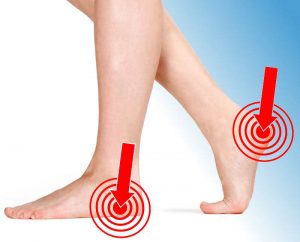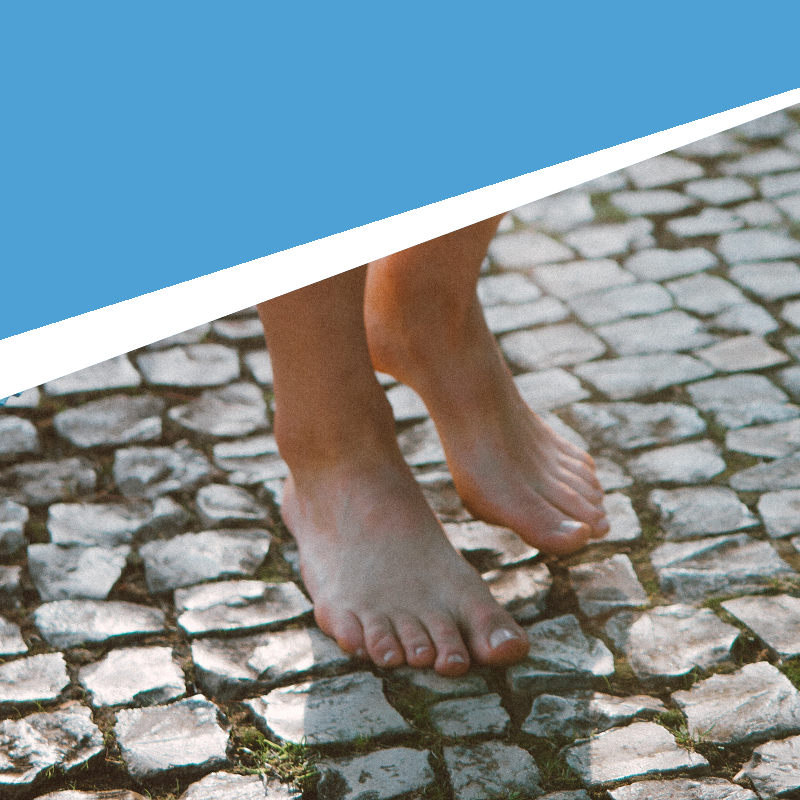Plantar fasciitis
You may have heard of or experienced this debilitating heel condition. Plantar fasciitis is an inflammation of the Plantar fascia and is the commonest cause of heel pain.
The plantar fascia is a fibrous band of tissue that supports many structures in the foot. Inflammation results from acute micro-tears commonly occurring at its point of origin on the heel bone. With constant use of the feet during daily activities, the micro-tears have little chance of healing and so the condition becomes increasingly painful particularly first thing in the morning and after long periods of inactivity.

Common signs and symptoms to watch out for are:
- Bruise like pain or ache around the inner region of your heel.
- Pain on weight bearing, usually worse in the morning or after any period of inactivity.
- There may be redness and swelling of the affected area
- Limping due to pain. Aches and pains on the supporting limb and foot.
What has caused this? It could be a number of things which we will discuss, but often patients recall a particular activity or moment they first felt the pain. You may recall your heel landing heavily on the ground perhaps.
Causes of injury to the plantar fascia include:
- Tightness of the plantar fascia
- Excessive Pronation
- A tight Achilles tendon
- Being overweight
- Wearing shoes that lack cushioning, support or stiffness
- Occupational
These may produce excessive tension and stress on the plantar fascia leading to micro-tears.
Plantar fasciitis is self-limiting. However, it is likely to be a real killjoy in the meantime! Perhaps you are a dancer, a runner, a teacher or a chef standing on your feet all day, if you are suffering from Plantar fasciitis you will want to manage this problem fast.
Treatments you can do at home:
- Rest your foot and reduce any pounding exercises.
- Stretches – In a sitting position, bring your toes towards you and hold for 30 secs and repeat 3 times before getting up to walk. These exercises can work wonders if you do them daily, especially first thing in the morning!
- Roll your foot on a cold tennis ball, a drink can or a Pediroller
- If you are overweight start a healthy diet and try a non-weight bearing exercise such as swimming for example.
- Try a gel heel cup and change to cushioning footwear like trainers.
Recovery from Plantar fasciitis can be a lot faster after starting a course of conservative treatment, so come and see us! Your Podiatrist will have vast experience in the treatment of heel conditions. We can work with you not only to treat the plantar fasciitis but can also prevent it from happening again!



